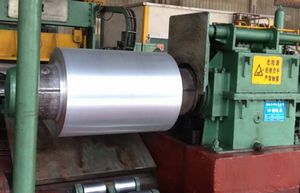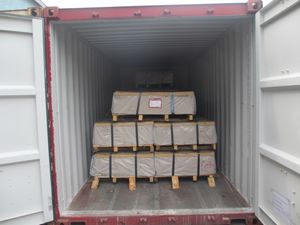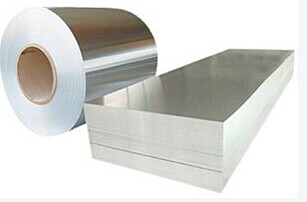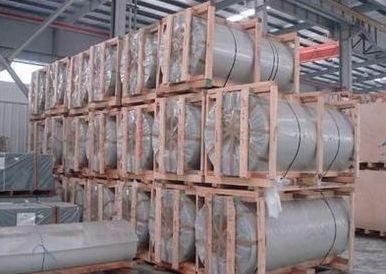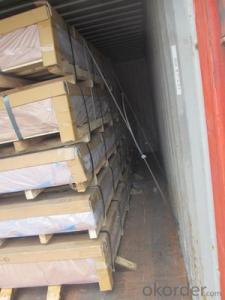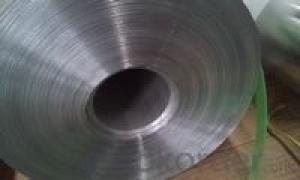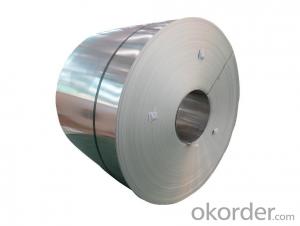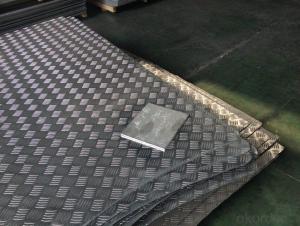1060 Aluminum Coils AA 5005 Aluminium Sheet
- Loading Port:
- China Main Port
- Payment Terms:
- TT OR LC
- Min Order Qty:
- -
- Supply Capability:
- -
OKorder Service Pledge
Quality Product, Order Online Tracking, Timely Delivery
OKorder Financial Service
Credit Rating, Credit Services, Credit Purchasing
You Might Also Like
supply Mill-finished / coated aluminum plate/sheet/ coil:
Alloy: AA1050,1060,1100,1200,2024,3003,3304,3005,3015,5052,5086,5754,5083,6061,7050,7475,8011, etc
Temper: O, H14/16/18/22/24/32/ H112/H321/T6,T851,T7451,T7351, etc
Thickness: 0.02mm—20mm
Width: 100mm—2000mm (Can be slitted)
Notice: PE coating / PVDF coating / Embossment can be done if required.
- Q: What are the common sizes and thicknesses of aluminum coils?
- The common sizes of aluminum coils range from 0.008 to 0.25 inches in thickness, while the common widths typically vary between 12 and 60 inches.
- Q: What is the cost-effectiveness of using aluminum coils in the long run?
- The cost-effectiveness of using aluminum coils in the long run is high. Aluminum coils are durable, corrosion-resistant, and have a long lifespan, reducing maintenance and replacement costs over time. Additionally, aluminum is a lightweight material, resulting in energy savings during transportation and installation. Moreover, aluminum coils offer excellent thermal conductivity, enhancing energy efficiency in heating and cooling systems. Overall, while the initial investment may be higher, the long-term benefits of using aluminum coils outweigh the costs.
- Q: What are the potential applications of coil-brushed aluminum coils?
- Coil-brushed aluminum coils have a wide range of potential applications due to their unique properties. Here are some of the potential applications: 1. Architectural: Coil-brushed aluminum coils can be used in architectural projects such as building facades, roofing, cladding, and decorative elements. The brushed finish adds a sophisticated and modern look to the structures. 2. Interior Design: These coils can be utilized in interior design applications like wall paneling, ceiling tiles, partition screens, and decorative accents. The brushed texture provides a sleek and stylish appearance, making them suitable for residential, commercial, and hospitality settings. 3. Furniture: Coil-brushed aluminum coils can be incorporated into furniture designs, including tables, chairs, shelves, and cabinets. The brushed finish adds a contemporary touch to the furniture pieces, making them suitable for modern and minimalist styles. 4. Automotive: The lightweight and corrosion-resistant nature of aluminum make it an ideal material for automotive applications. Coil-brushed aluminum can be used in the manufacturing of interior trim, dashboards, door panels, and other decorative components in cars, trucks, and motorcycles. 5. Electronics: With its excellent conductivity and heat dissipation properties, coil-brushed aluminum can be used in the production of electronic devices such as smartphones, laptops, and tablets. The brushed finish adds a premium feel to these products. 6. Signage and Branding: Coil-brushed aluminum coils can be used in the manufacturing of signage and branding elements. The brushed texture enhances the visibility and aesthetics of the signs, making them stand out and convey a sense of quality and professionalism. 7. Kitchenware and Appliances: The durability, heat resistance, and easy cleaning properties of aluminum make it a popular choice for kitchenware and appliances. Coil-brushed aluminum can be used to produce cookware, bakeware, kitchen utensils, and appliance panels, providing a sleek and modern look to these products. 8. Packaging and Labeling: Coil-brushed aluminum coils can be utilized in the production of packaging and labeling materials. The brushed finish adds an elegant touch to product packaging, making it visually appealing and attractive to consumers. Overall, the potential applications of coil-brushed aluminum coils are vast, ranging from architectural and interior design projects to automotive, electronics, kitchenware, signage, and packaging industries. Their unique properties make them a versatile and desirable material for various applications.
- Q: Where can I purchase used aluminum coil over the internet?
- <p>Yes, you can buy used aluminum coil online. There are various online platforms and marketplaces where you can find used aluminum coils for sale. Websites like eBay, Alibaba, and specialized metal trading platforms often list used aluminum coils. Additionally, you can check with local recycling centers or metal suppliers who may have used aluminum coils available. Always ensure to verify the condition, specifications, and authenticity of the product before making a purchase.</p>
- Q: How many atoms are there in a piece of aluminum foil, 7.3 inches in length and 12.0 inches in width, and 0.141 mm thick? According to this problem, aluminum foil is a flat-rolled product, rectangular in cross section, of thickness from 0.006(0.15mm) to 0.00025(0.006mm). The density of Al is 2.699 g/cm3.
- the nice and cozy button is Avogadro' sort that's 6.0226 x 10^23 atoms consistent with mole So if the cost of the Al roll is $2.fifty two for one lb Then proceed as follows: a million lb = 454 gms At Wt Al = 26.ninety 8 gms consistent with mole Moles of Al in a million lb = 454/26.ninety 8 = sixteen.80 two moles sort of atms of Al = sixteen.80 two x 6.0226 x 10^23 = a million.013 x 10^25 cost consistent with atom = $2.fifty two / a million.013 x 10^25 = $2.2847 x 10^-25 consistent with atom or 0.0000000000000000000000228 cents consistent with atom. BTW, you probably did no longer finished specify the situation - how thick is teh Al foil? In any journey Al atoms are enormously inexpensive. desire this helps
- Q: Can aluminum coils be used in heat exchanger fins?
- Yes, aluminum coils can be used in heat exchanger fins. Aluminum is a common material choice for heat exchangers due to its excellent thermal conductivity and corrosion resistance. Aluminum coils can efficiently transfer heat and withstand high temperatures, making them suitable for use in heat exchanger fins.
- Q: What are the uses of aluminum coils?
- Aluminum coils have a wide range of uses across various industries. One of the primary uses of aluminum coils is in the manufacturing of HVAC systems and air conditioning units. The coils are used to transfer heat and cool air, making them essential components in these systems. Additionally, aluminum coils are also commonly used in the construction industry for roofing, cladding, and insulation purposes. They are lightweight, durable, and resistant to corrosion, making them ideal for outdoor applications. The automotive industry also utilizes aluminum coils in the production of vehicles. They are used in the manufacturing of various parts, including radiators, heat exchangers, and condensers, due to their excellent heat transfer properties. Aluminum coils are also extensively used in the packaging industry. They are used to produce cans and containers for food and beverages. Aluminum is a great choice for packaging as it is lightweight, recyclable, and provides a barrier against moisture, oxygen, and light, ensuring the quality and freshness of the enclosed products. Furthermore, aluminum coils find applications in electrical wiring, where they are used as conductors due to their high electrical conductivity. They are also used in the production of electronics, such as laptops, smartphones, and tablets, as they offer excellent heat dissipation properties. Overall, the uses of aluminum coils are diverse and varied, ranging from HVAC systems and construction to automotive, packaging, and electrical applications. The versatility, durability, and excellent properties of aluminum make it a preferred material choice in many industries.
- Q: Are there any limitations on the bending or forming of aluminum coils?
- The bending or forming of aluminum coils does have limitations. Despite being a relatively malleable metal, aluminum does possess certain constraints in terms of bending or forming. Firstly, one limitation lies in the occurrence of cracks or fractures during the bending process. Unlike other metals, aluminum exhibits lower ductility, making it prone to cracking or breaking under excessive stress or strain. As a result, it is crucial to carefully manage the bending process to prevent over-stressing the aluminum coils and causing damage. Another limitation involves the spring-back effect. When aluminum is bent or formed, it naturally tends to slightly return to its original shape. This poses a challenge in achieving precise and accurate bends or forms, especially with complex shapes or tight tolerances. Moreover, the thickness and grade of the aluminum can impact its bendability. Thicker aluminum coils may necessitate more force or specialized equipment for bending, while different mechanical properties of specific aluminum alloys can influence their formability. To address these limitations, various techniques and tools can be employed. For instance, the use of specialized bending equipment like press brakes or roll forming machines can help control the bending process and minimize the risk of cracking or spring-back. Additionally, preheating the aluminum coils can enhance their ductility, making them more pliable for bending or forming. Considering these limitations and operating within defined parameters is essential for successful bending or forming of aluminum coils. Seeking advice and assistance from experts or manufacturers well-versed in aluminum processing can provide valuable guidance in effectively overcoming these limitations.
- Q: What are the rules and regulations concerning the disposal of old aluminum coils?
- <p>Yes, there are regulations on the disposal of old aluminum coils. These regulations vary by country and region, but generally, they aim to prevent environmental pollution and promote recycling. In the United States, for example, the Environmental Protection Agency (EPA) sets guidelines for recycling and disposing of scrap metal, including aluminum. Businesses and individuals are often required to recycle aluminum coils rather than sending them to landfills. Proper disposal may involve sorting, cleaning, and sending the coils to recycling facilities that can process and reuse the material. Violations of these regulations can result in fines and penalties. It's important to check local and national regulations for specific requirements.</p>
- Q: Is it safe to use aluminum coils in various applications?
- <p>Yes, aluminum coils are generally safe to use. They are widely used in various industries due to their excellent thermal conductivity, corrosion resistance, and lightweight properties. Aluminum coils are non-toxic and do not emit harmful substances, making them safe for applications such as food packaging and construction. However, safety can depend on specific uses and manufacturing processes, so it's important to ensure that the coils meet the required safety standards for their intended application.</p>
Send your message to us
1060 Aluminum Coils AA 5005 Aluminium Sheet
- Loading Port:
- China Main Port
- Payment Terms:
- TT OR LC
- Min Order Qty:
- -
- Supply Capability:
- -
OKorder Service Pledge
Quality Product, Order Online Tracking, Timely Delivery
OKorder Financial Service
Credit Rating, Credit Services, Credit Purchasing
Similar products
Hot products
Hot Searches
Related keywords




